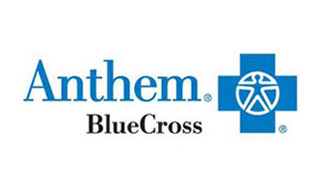Tag Archives: Medical Issues
Who Else Has Accessed Your Medical Data?
by Lisa Zamosky, Los Angeles Times

So far in 2015 alone, there have been more than 32 health data breaches as a result of hacking, according to the U.S. Health and Human Services Office for Civil Rights. “Health records are more valuable to identity thieves than financial records, and they can actually be sold at a premium on the black market,” [says one expert]. … It’s a more complicated crime to resolve than financial theft, with fewer protections in place to help patients whose information is stolen. … Medical identity theft can also dangerously cause someone else’s health data to get intertwined with yours. Read More ›
Bigger May Be Better For Health Insurers, But Doubts Remain For Consumers
by Reed Abelson, New York Times

Anthem, which operates for-profit Blue Cross plans in 14 states, merging with Cigna, another large for-profit carrier, along with the planned deal for Aetna to join Humana, a smaller rival known for its private Medicare plans, would create two behemoths.
Along with the already enormous UnitedHealth Group, these companies would control nearly half of the American commercial health insurance market. … “Are these companies not big enough that they needed to be bigger?” [asked one insurance broker]. “They’re all huge.” Read More ›
Anthem To Buy Cigna, Creating Biggest U.S. Health Insurer
by Ankur Banerjee and Ransdell Pierson, Reuters

Anthem Inc said on Friday it would buy Cigna Corp for about $54.2 billion, creating the largest U.S. health insurer by membership and accelerating the industry’s consolidation from five national players to three. … State insurance regulators and federal antitrust authorities are expected to scrutinize how the Anthem-Cigna and Aetna-Humana deals would affect competition for Medicare and individual and commercial insurance. Within a few hours of the announcement, several U.S. lawmakers and a leading physicians group said they feared the pending acquisitions would hurt consumers … Read More ›
Aetna’s 21% Rate Hike Amounts To ‘Price Gouging,’ California Regulator Says
by Chad Terhune, Los Angeles Times

“Aetna’s pattern of unreasonable increases equates to price gouging in today’s market,” [said Shelley Rouillard, director of the California Department of Managed Health Care.] … Overall, the managed-care agency has found six rate increases unreasonable since 2011, and four of them were from Aetna. In May, the regulator found Aetna’s 19.2% increase for small employers unreasonable. But California officials have no power to stop health insurance rate increases. Read More ›
Out-Of-Network Costs Lurk Even At In-Network Hospitals
by Chad Terhune, Los Angeles Times

A recent report by Consumers Union found that nearly 1 in 4 Californians say they were charged out-of-network rates when they thought that a provider was in-network. Most of these people — more than 6 in 10 — assume that doctors at an in-network hospital are also in-network, yet that’s often not the case. Federal law doesn’t protect patients from surprise bills. The Affordable Care Act requires insurers to cover out-of-network emergency services at in-network rates, but it doesn’t stop doctors from balance billing. … As it stands today, the healthcare system has consumers over a barrel. Read More ›
California Tax Officials Blast Blue Shield In Audit
by Chad Terhune, Los Angeles Times

Blue Shield’s operations are indistinguishable from those of its for-profit healthcare competitors, the auditors found, and it should be stripped of the tax break it has enjoyed since its founding in 1939. The insurance giant does not advance social welfare, the key test for preserving its tax exemption, according to the records. … Since the revocation became public, Blue Shield has come under increasing scrutiny from regulators, lawmakers and consumer groups over its massive financial reserves and its proposed purchase of a Medicaid insurer for $1.2 billion. Read More ›
California’s Largest Nursing Home Owner Under Fire From Government Regulators

Since 2006, [Shlomo] Rechnitz and his primary company, Brius Healthcare Services, have acquired 81 nursing homes up and down the state, many of them through bankruptcy court. His chain has grown so quickly that he now controls about 1 in every 14 nursing home beds in California, giving him an outsized influence on quality of care in the state. … Between October and January, three of Rechnitz’s facilities, including South Pasadena, were decertified by the federal government, an economic kiss of death that is extremely rare. The punishment strips a nursing home of its crucial Medicare funding until it can demonstrate improvement, or is closed or sold. Read More ›
Price Of A Common Surgery Varies From $39,000 To $237,000 In L.A.
by Chad Terhune and Sandra Poindexter, Los Angeles Times

The average charge nationwide for a major joint replacement operation was $54,239, according to federal figures. Joint replacement surgeries are Medicare’s most common inpatient procedure, costing the federal government more than $6.6 billion in 2013. Overall, the latest data show what hospitals charged and what Medicare paid for 100 of the most common inpatient stays and the 30 most common outpatient procedures. The inpatient data cover more than $62 billion of Medicare money. Read More ›
As An Insider Speaks Out, Chemical Industry’s Credibility Sinks
by the Editorial Board, The Sacramento Bee

Last year, Sen. Mark Leno, D-San Francisco, whose previous legislative attempts to restrict flame retardants had died in part because of [former industry lobbyist turned whistleblower Grant] Gillham, won approval of a bill requiring that products containing the flame retardants be labeled. Now, with Gillham as an ally, Leno is carrying a new bill, SB 763, which would require labeling of products for juveniles such as napping pads. It deserves passage, no matter what the American Chemistry Council says. Read More ›
American Chemistry Council Lied About Lobbying Role On Flame Retardants, Consultant Says
by David Heath, The Daily Beast

The American Chemistry Council has long maintained that it had nothing to do with an enormously successful but deceitful lobbying effort in state capitals to defend the use of potentially ineffective and toxic flame retardants in furniture. Now, in a rare breaking of ranks, a top industry consultant is discrediting that story. … He stepped up to a microphone at a California State Senate hearing to announce his support for a bill [CFC-co-sponsored SB 763] requiring labeling of children’s products containing the chemicals. Read More ›
With Billions In The Bank, Blue Shield Of California Loses Its State Tax-Exempt Status
by Chad Terhune, Los Angeles Times

Anthony Wright, executive director of Health Access, said the tax board’s decision could have a significant effect on the debate over Blue Shield’s future and on health policy statewide. “It’s important to have this debate over Blue Shield’s public-service mission and how they are fulfilling it,” Wright said. “What would a white-hat insurer look like?” … Some consumer groups have also questioned whether certain Blue Shield spending is out of line with its nonprofit mission. Read More ›
CFC Sponsors Bill To Protect Seniors From Unethical Long-Term Care Referral Agencies
SACRAMENTO – The Consumer Federation of California (CFC) is sponsoring Senate Bill 648 (Mendoza, D-Artesia) to increase disclosure requirements and strengthen oversight of private placement agencies that refer seniors to residential care facilities for the elderly (RCFEs). Read More ›
Lawmaker Seeks To Squelch Flame Retardants
by Samantha Weigel, San Mateo Daily Journal

Leno said SB 763 is a continuation of his successful legislation last year that requires upholstered furniture such as beds and couches be labeled as to whether they contain flame retardant chemicals. Ultimately, the hope is informed consumers through market demand will phase out the use of flame retardants, Leno said. “Our new fire safety standard, equally fire safe … allows for compliance with or without the use of these toxic flame retardants,” Leno said. Read More ›